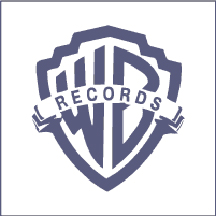WARNER BROS. RECORDS 
Dean Chamberlain was born in San Francisco and grew up in the nearby city of San Mateo. After the Motels (the original band that is) broke up, he ran an ad looking for other musicians; out of this, a trio called Skin was born in 1978 that also included Michael Ostendorf (bass) and Randall Marsh (drums). They started playing gigs in the L.A. area, and scouts for Warner Bros. Records signed them the day after they heard one of their shows. Ostendorf left the band, and after Gary Tibbs replaced him on bass, they changed their name to Code Blue, hospital-ese for a patient requiring immediate resuscitation. (September 2012) * * * When David Geffen's Asylum Records purchased his recording contract for $1,000,000 from Fantasy Records (later joined by Warner Bros. Records) – though those rights applied only for North America; Fogerty's worldwide rights remained with Fantasy – John Fogerty finally was able to re-establish himself as a major rock artist with his 1985 hit album Centerfield. The title track, "Centerfield" quickly became one of the best-loved baseball songs in the country. Fogerty couldn't resist tweaking his old nemesis Saul Zaentz at Fantasy with two other tracks, "Mr. Greed" and "Zanz Kant Danz" (about a pig who can't dance but would "steal your money"); after a while, he was forced to change the name of the latter song to "Vanz Kant Danz". * * * In case you'd forgotten, MTV censored the word "joint" in Tom Petty's harmless 1994 hit song "You Don't Know How It Feels", and Warner Bros. Records refused to include the B-side of the single, "Girl on L.S.D." on the accompanying hit album, Wildflowers. (January 2013) * * * Or as Mick Farren himself put it in one verse of an earlier song, "Hard Times": "Started me this rock and roll band [the Deviants] / Thought that I would get real rich / Warner Bros. thought we sucked / Ain't this modern life a bitch."
(August 2013)
* * *
The flip side, "!Aaah-Ah ,Yawa Em Ekat Ot Gnimoc Er'yeht" is simply the recording of "They're Coming to Take Me Away, Ha-Haaa!" played backwards – the simple structure and gleeful singing with echo effects make that much more listenable than might be imagined – and almost everything on the label was printed in mirror-image, including the song name, artist's name and even the Warner Bros. Records logo.
(January 2015/1)
* * *
I have previously noted that the Black Keys were profiled on CBS Sunday Morning several years ago. During their interview, they mentioned that they frequently allow their music to be used for commercials and other similar purposes. They kept expecting to hear cries of “sellout!”, but they never came. Wikipedia mentioned: “The band continued to gain exposure through continued song licensing, so much so that they were Warner Bros. Records’ most-licensed band of the year [2010].” Even with the resources of a major record label available to them (Nonesuch Records – associated with Warner Bros. Records and originally founded as a budget classical music label), the Black Keys returned to Patrick Carney’s basement for their fourth album, Magic Potion (2006). (June 2017) |